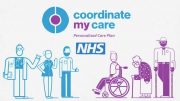For a long time, most people have not been considering customer service as an important aspect of healthcare because healthcare quality is mainly measured by how a doctor helps a patient get healthy again. However, patients are increasingly using customer service to judge the quality of healthcare service. This has led to the introduction of modern features aimed at improving patients satisfaction in healthcare facilities.
Digitising workflow is one way of improving customer satisfaction in a healthcare facility as it will lead to smoother day-to-day operations and increase the interactions between a healthcare provider and the patient. All these improvements lead to a better experience on the side of the patient. Selecting the best home health software can help ensure that healthcare businesses offer that high-level of patient satisfaction.
One such system is the healthcare help desk software. This software enables healthcare providers to centralise the operations of all their departments. Additionally, hospitals and clinics can use IT support outsourcing for these complex systems if they lack the resources required for running the system internally. Below are some of the factors to consider when choosing Healthcare help desk software.
Planned Uses
Since healthcare providers meet different customer needs, it is advisable to consider the roles you want the healthcare helpdesk software to perform, no matter whether you are using IT support outsourcing or have an internal IT department. These roles may differ depending on your facility’s size, your specialisation, and your type of clients. Some of the roles incorporated in healthcare help desk software include coordinating operations, billing, automation, patient communication and many more.
Cost
The cost of a healthcare help desk software will depend on its features. A healthcare service provider should choose the software depending on their size and the type of services they offer. It is advisable to research all the software’s features and any hidden costs before you settle on a deal.
Ease of use
You should also consider the software’s ease of use as your staff and clients will use it. A hard-to-use software may require you to train your staff, plus you will also be receiving a lot of customer-related complaints. On the other hand, an easy-to-use software will be fun to use among all stakeholders. You can involve the staff as they may have brilliant suggestions about the most effective systems that they have used.
Your Speciality
You should choose healthcare help desk software with features that meet the needs of your practice. For example, software for a general clinic may not be the best for specialised clinics like gynaecologists. Also, software for a gynaecologist may differ from that of a dermatologist. Ask for referrals from others in your field.
Compatibility with other software
Good healthcare help desk software should be compatible with other healthcare-related software for total efficiency. A non-compatible system leads to a waste of time due to additional tasks like manually entering data into the system and sharing data outside the system.
After-sale services
A good software vendor should provide essential after-sale services like training your staff and providing support whenever you encounter problems with the system. Also ensure that their customer support is available at any time of the day for a whole year as you may need someone to fix issues on odd hours or during a public holiday.
Parting words
Having a quality healthcare help desk software is one of the most significant investments in a healthcare facility as it will improve your customers’ experience and improve your staff’s productivity. However, you should ensure that the software you choose fits you best in all areas as explained above.





